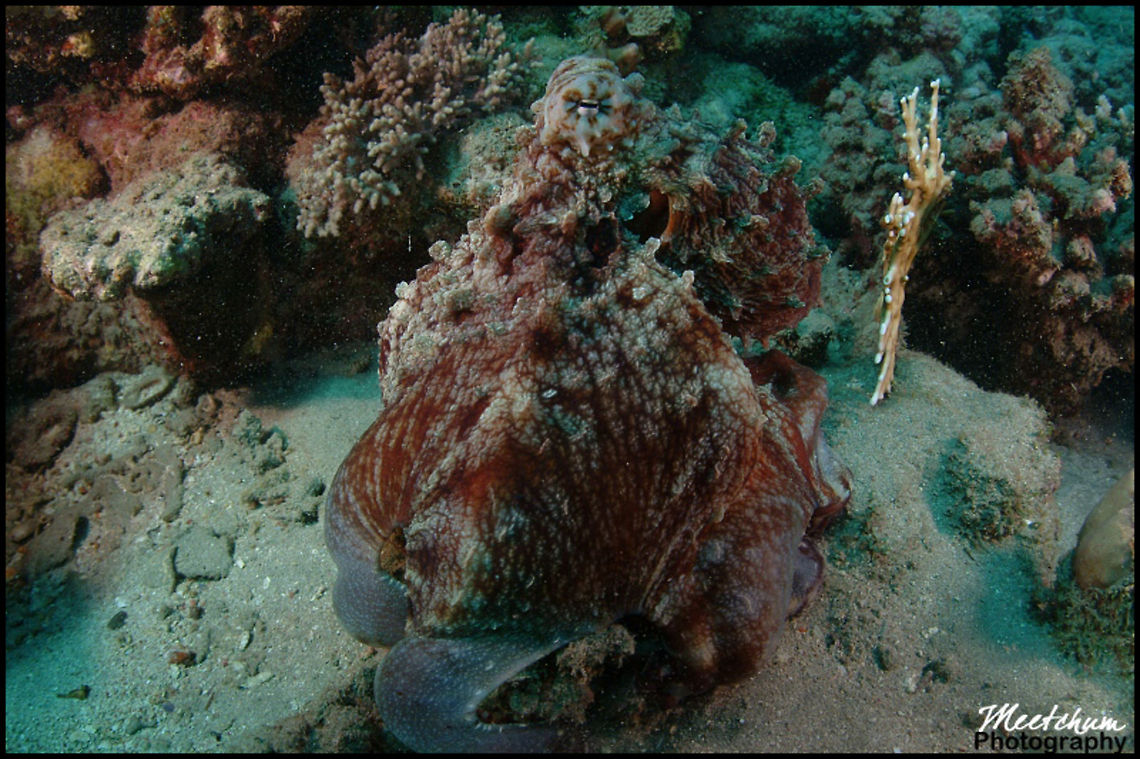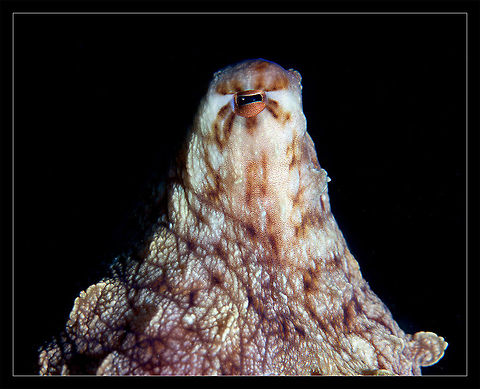 Species intro
Species intro
Octopus
The octopus ( /ˈɒktəpʊs/; traditionally, plural: octopuses, see below) is a cephalopod mollusc of the order Octopoda. Octopuses have two eyes and four pairs of arms, and like other cephalopods they are bilaterally symmetric. An octopus has a hard beak, with its mouth at the center point of the arms. Octopuses have no internal or external skeleton (although some species have a vestigial remnant of a shell inside their mantle), allowing them to squeeze through tight places. Octopuses are among the most intelligent and behaviorally flexible of all invertebrates.

''Octopus cyanea'', also known as the big blue octopus, day octopus and Cyane's octopus, is an octopus in the family Octopodidae. It occurs in both the Pacific and Indian Oceans, from Hawaii to the eastern coast of Africa.
''O. cyanea'' grows to 16 cm in mantle length with arms to at least 80 cm.
The type specimen was collected off Australia and is deposited at The Natural History Museum in London.